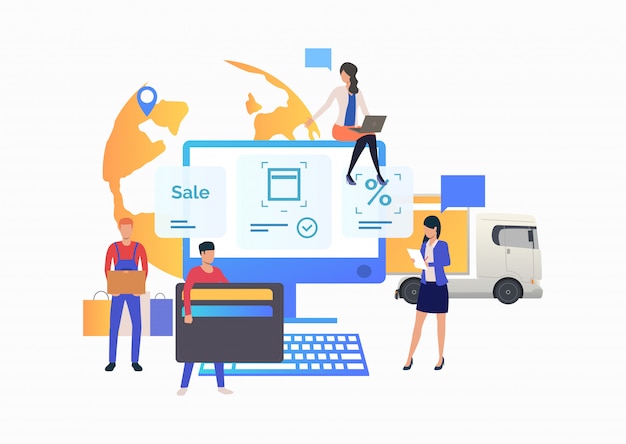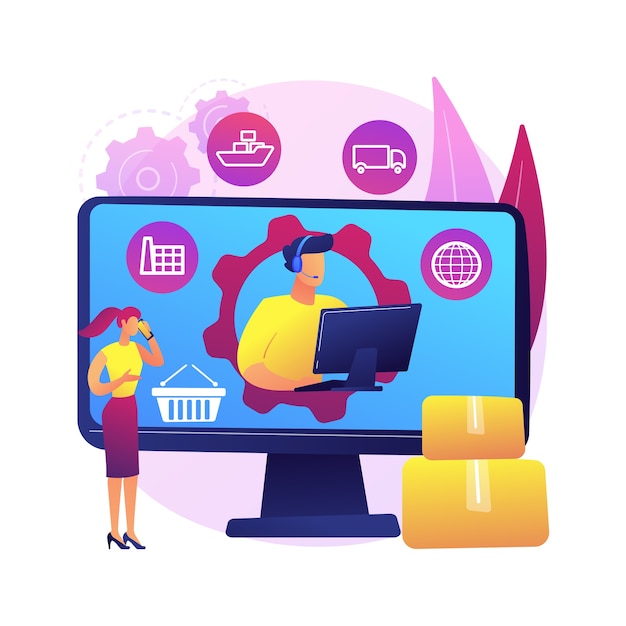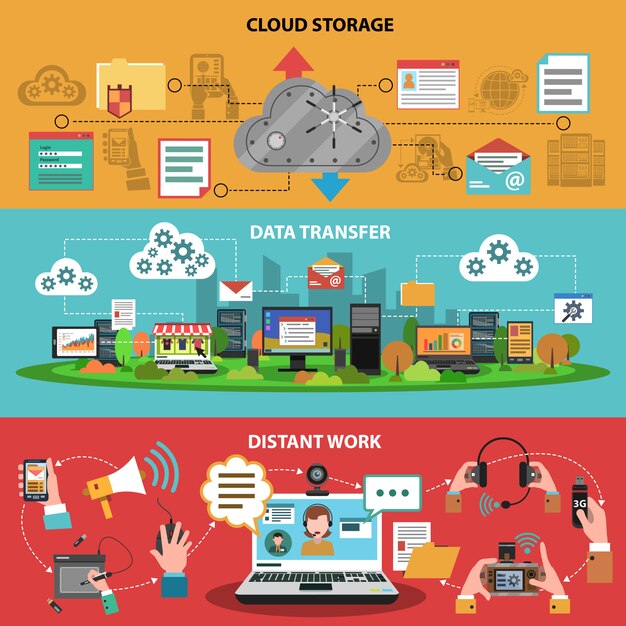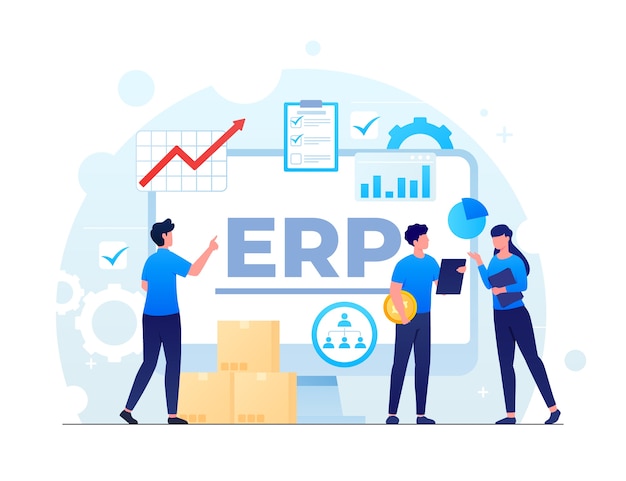ERP For Small Business: Affordable Options, Operations, And Benefits
Managing a small business is not easy. If you are the whole and sole of your business, you can relate to juggling between managing capital, checking inventory, maintaining client relationships, and reaching targets. Thankfully, we have ERP for small business enterprises to carry out all this and more functions.
But what about the cost? The good news is that there are many affordable ERP solutions for small business options tailored to SMBs.
In this blog, we will dive into the list of top erp applications for small businesss, their benefits, and what it takes to implement ERP software for small business successfully.

7 Best ERP For Small Business
Selecting the right cloud-based ERP for SMEs can seem overwhelming, given the many choices available. We’ve done the hard work for you by listing some of the best ERP applications for small business companies.
1. Eklavya ERP
A great web-based ERP for small business, Eklavya ERP excels in affordability and functionality. Designed with SMBs in mind, it offers a range of modules, including HR, finance, and inventory management.
Our dedicated focus is on critical applications like :
eOffice (Document Management System)
eHRX (HR & Payroll Management)
eAIMS (Assets, Inventory & Maintenance Solution)
Features:
Cost-effective with diverse modules.
Scalable to meet growing business needs.
Uses advanced technologies like machine learning (ML), the Internet of Things (IoT), and artificial intelligence (AI).
Training programs for easy onboarding.
2. Zoho ERP
Known for its simplicity, Zoho ERP integrates seamlessly with its ecosystem. It’s ideal for SMBs needing a simple ERP for small businesses with CRM and sales features.
Features:
Customizable dashboards.
Affordable pricing starting at ₹1,800/month.
3. Odoo
Odoo’s modular design makes it a small-scale ERP that fits a range of industries, from retail to manufacturing. Odoo is used by over 7 million businesses worldwide, many of which are SMBs looking for budget-friendly solutions.
Features:
Highly scalable with extensive modules.
Excellent support for global operations.
4. Tally.ERP
Tally.ERP is a favorite for its accounting and tax compliance features, making it a go-to for Indian SMBs.
Features:
Affordable and GST-compliant.
Excellent for small-scale ERP needs.
5. NetSuite
One of the best small business cloud ERP systems, NetSuite offers robust scalability and global support.
6. Microsoft Dynamics 365
This cloud-based ERP software for small business stands out with AI-driven analytics and integration with Office 365.
7. SAP Business One
SAP Business One offers enterprise-level features for SMBs, which are ideal for businesses planning for long-term scalability.
Features:
Strong supply chain management features.
Real-time analytics for informed decision-making.
Benefits Of ERP Software For Small Businesses
Boost Operational Efficiency
ERP software automates all manual tasks that are repetitive, tedious, and time-consuming. Imagine a small retail business managing inventory manually. But, with ERP, stock updates happen automatically, preventing over-ordering or running out of essential products.
Saves Your Money and Maximize ROI
ERP systems streamline processes, reducing errors and unnecessary expenses. Over time, these savings translate into better ROI. For example, automating payroll can save hours of manual work each month, leaving room for strategic tasks.
Scale and Customize as You Grow
What’s the point of investing money in software that won’t be compatible after 2 years? However, a modern ERP system like Ekklavya Solutions is scalable.
Whether you’re managing a startup or a growing enterprise, ERP software adapts to your needs. Add new modules or users as your business expands, ensuring the system evolves with you.

How To Choose The Right ERP For Small Business?
Selecting the perfect ERP system for your small business requires careful thought. Here’s a step-by-step guide:
Match Your Budget and Business Size
Start by assessing how much you’re willing to spend. While small-scale businesses often opt for affordable solutions, ensure the ERP offers value for money and isn’t too limited in features.
Pro Tip : Cloud-based ERP systems often have subscription-based pricing, making them cost-effective for small businesses.
Look for Must-Have Features
What’s essential for your business? Some companies need financial management; others focus on CRM or inventory tracking. Create a checklist of features like real-time data access, reporting, and API integrations.
Prioritize User-Friendliness
A complex system can overwhelm your team. Choose an ERP with a simple interface and minimal learning curve.
Compare Solutions and Read Reviews
Don’t rush! Compare options based on scalability, pricing, and user reviews. Platforms like Capterra or G2 can provide insights from real users.
Ask for a Demo or Trial
Before committing, request a demo. Many ERP providers offer free trials, allowing you to explore the interface and features.
Example: A bakery in Mumbai chose Zoho ERP after a demo revealed its intuitive inventory module was perfect for managing perishable goods.
Final Tip: Start Small and Scale Later
Begin with basic modules that address your immediate needs. Add more features as your business grows, ensuring the ERP evolves with you.
With the right system in place, your small business can thrive, efficiently managing processes and staying ahead of the competition.
Should You Consider Cloud ERP Systems For Small Business?
Yes, absolutely! Infact, according to Gartner, the cloud ERP market is expected to grow by 17% annually as SMBs increasingly adopt these solutions.
Cloud ERP systems for small business are highly popular because they offer:
Accessibility: Work remotely with real-time data.
Affordability: Subscription models reduce upfront costs.
Minimal IT Overheads: Vendors handle maintenance and updates.

Most Affordable ERP Solution For Small Businesses
If cost is a concern, options like Eklavya’s ERP is the best cheap ERP choice available. We also understand your business is unique and a standard software that works for every business might not work for you. Keeping your needs and requirements in mind, we provide customized solutions that are pocket-friendly. Besides being budget-friendly, we provide excellent value without sacrificing functionalities like:
Financial management
What Does ERP Implementation Involve For Small Businesses?
By now, you must be aware that implementing SMB ERP software can be a game-changer for you. But it’s not just a plug-and-play situation.
Therefore, before implementing ERP software in an SME, you must consider the following:
Change management- Management and staff might resist such drastic change. So, managing this change and assuring the employees must be done. Communicate openly about why the change is happening and how it will benefit everyone. Deploy strategies so that minimal disruption is caused.
User Adoption - Your team needs to get comfortable with the new system. This means investing time in training and making sure everyone understands how to use the software effectively. Engaging employees early on can help them feel more involved and less resistant to the new tools.
Considering Integration- If any software already exists, then how to integrate the ERP with existing software must be thought of.
Risk Appetite - Not every management has a risk-bearing capacity. So they might not support it. Taking the management into support is very important.
The Implementation Process: Steps for Successful Deployment
Step 1: Chalk Out Your Business Needs
Start with a clear plan that outlines your goals and what you want to achieve with the ERP system. This will guide the rest of the process.
Step 2: Choose the Right Software
Research and select an ERP solution that fits your business needs. Consider factors like scalability, user-friendliness, and support options.
Step 3: Clean and Prepare Your Data
Prepare your existing data for migration. This means cleaning up and organizing your data so it can be transferred to the new system without issues.
Step 4: Customize the ERP to Your Needs
Set up the ERP software to match your business processes. Suppose more hiring is needed. So, your recruitment software must be scalable to match the growing needs. This might involve customizing features to suit your specific needs.
Step 5: Test Before You Launch
Run comprehensive tests to identify and fix bugs. Testing ensures the system is ready for real-world operations.
Step 6: Go Live
Once everything is set and tested, it’s time to launch the ERP system. Be prepared for some bumps along the way, and keep communication open.
Step 7: Post-Implementation Support
After going live, continue to support your team as they adjust to the new system. Gather feedback and make necessary adjustments to improve the user experience.

What Should Small Businesses Choose, ERP Vs. CRM
When small businesses are evaluating software solutions, two prominent options often come to the forefront: Enterprise Resource Planning (ERP) and Customer Relationship Management (CRM) systems.
While ERP applications for small business manage operations, CRM focuses solely on customer interactions. Depending on your goals, you may choose one or integrate both for maximum efficiency.
Here’s a breakdown of ERP vs CRM:
| Feature/Functionality | ERP (Enterprise Resource Planning) | CRM (Customer Relationship Management) |
|---|---|---|
| Core Purpose | Integrates and manages internal business processes and resources | Manages customer relationships and sales processes |
| Key Modules | Finance, HR, Inventory, Supply Chain, Manufacturing | Sales, Marketing, Customer Service, Support |
| User Base | Multiple departments (finance, HR, ops) | Primarily sales and marketing teams |
| Data Focus | Internal operations and resource management | Customer interactions and sales analytics |
| Automation | Automates business processes like order processing and inventory management | Automates customer interactions, sales tracking, and lead management |
| Reporting | Comprehensive reporting on business performance and resource allocation | Customer-centric reporting focusing on sales performance, pipeline, and customer feedback |
| Implementation Complexity | Generally more complex and time-consuming to implement | Usually simpler and quicker to deploy |
| Scalability | Scales to accommodate more complex organizational structures | Scales with a focus on increasing customer base and sales activities |
Use Cases of ERP vs CRM
Choose ERP When:
Cloud-based solutions offer:
Your business is growing and requires integration of multiple departments.
You need to manage complex processes like - supply chains, inventory levels, and finance management.
There is a need for real-time visibility into operations and performance across departments.
Efficiency in resource management and data centralization is a priority.
Choose CRM When:
Your primary focus is on improving customer relationships and increasing sales conversions.
You need tools for better lead tracking, customer insights, and personalized communication.
Managing customer feedback, inquiries, and support tickets is critical for your success.
You are working with a smaller team that directly interacts with customers and can benefit from enhanced sales tools..
Looking for a cheap ERP system that supports your small business and is scalable? Contact us today for expert guidance on choosing the perfect cloud ERP system for your business.
Frequently Asked Questions About ERP For Small Business
ERP Solutions by Ekklavya is the best ERP system for small companies. It has an intuitive interface and multiple functionalities. Ekklavys’s ERP software is the best low cost erp software.
The top features of cloud based ERP for SME (Small-medium Enterprises)are:
Financial Management - Accounting, bookkeeping, GST compilation, etc
Supply Chain Management - procurement process, distribution, and sales.
Customer Relationship Management (CRM)- customer support, after-sales.
Business intelligence & Data analytics - data extraction, collection and synchronization, data reporting.